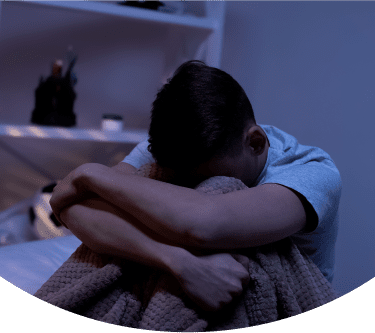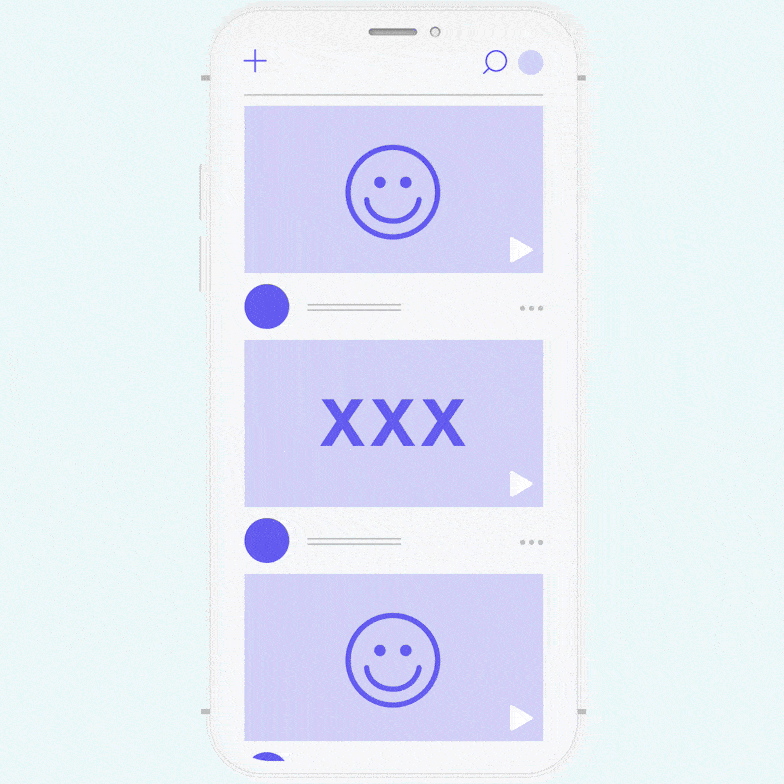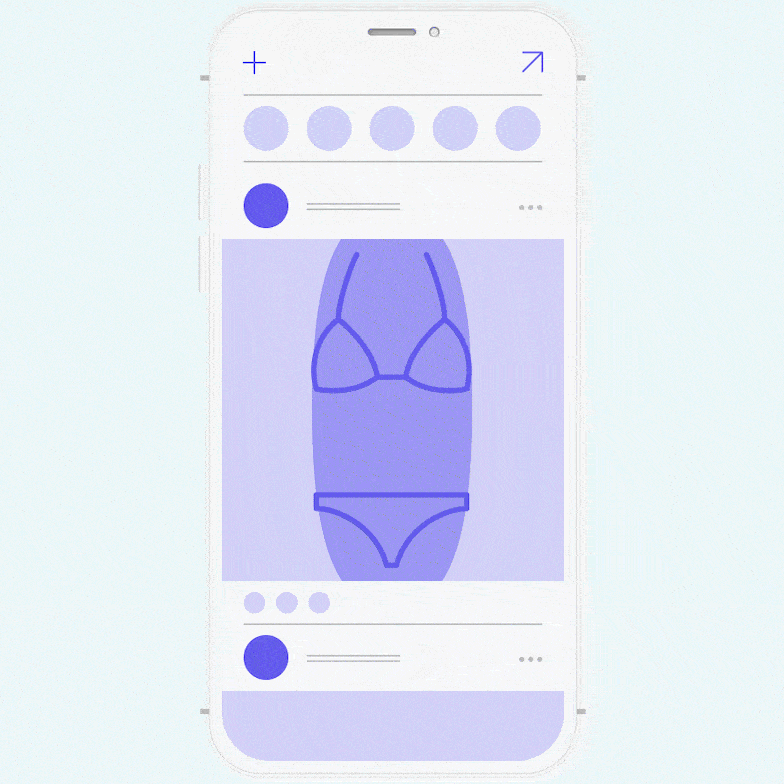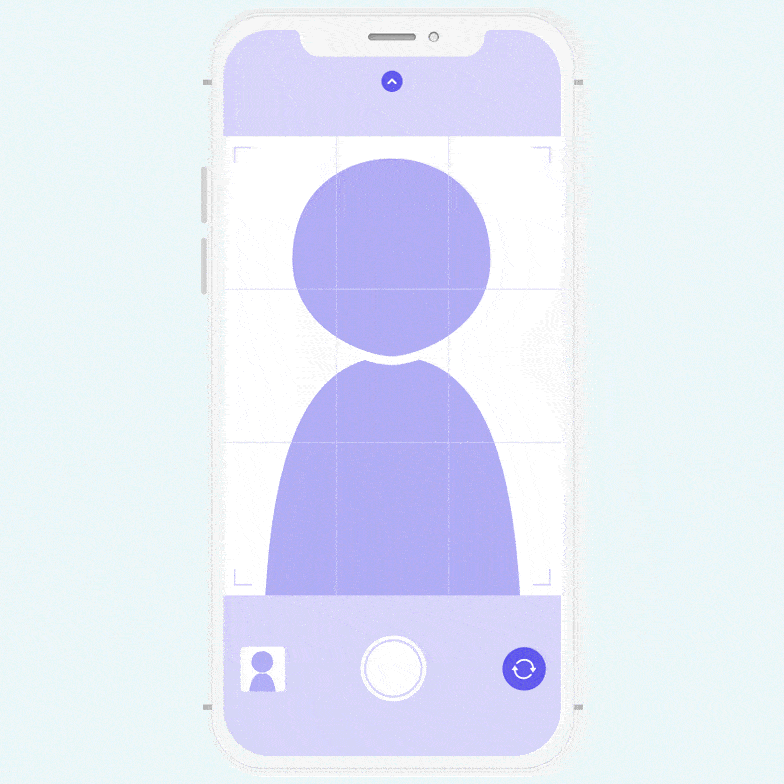6 reasons filtering your child’s internet could be the best parenting decision you make this year
6 reasons filtering your child’s internet could be the best parenting decision you make this year
Families everywhere trust Canopy
“Helps me give my teens their independence and privacy without having to worry about the worst.”

“The app works great. It has been especially helpful during the pandemic. I would recommend it to anyone.”

“Love how they’re using AI to keep up. The internet is way too dynamic to think that the old filter softwares will be effective. Also great to have manual control over specific websites.”

“Great app, easy to use. In my mind it's one of the best solutions to addressing a serious problem that comes with mobile phones for people of ALL ages, not just kids.”

“Simple to use and incredibly useful! Allows for conversations to be had about proper technology usage. This is the best app that I've found so far.”

“The data about what porn can do to your brain is truly frightening. Apps like this are such a powerful tool to keep your children safe while they are still too young to understand the consequences.”

“Love the mission love the product. Thank you, Canopy team, for serving our society in this way...a ray of light in the grossly over sexualized world we live in. What a great tool to have in the toolbox!”

Most kids are exposed to graphic sexual content online by age 13, usually unintentionally.
Statistics show that seven in 10 children have accidentally accessed pornography on the internet. And forty percent of children accidentally access internet pornography through innocent, well-intentioned searches. Kids are spending more time online than ever before, and with every additional hour, the likelihood of stumbling across something they shouldn’t increases.
Most kids are exposed to graphic sexual content online by age 13, usually unintentionally.
Statistics show that seven in 10 children have accidentally accessed pornography on the internet. And forty percent of children accidentally access internet pornography through innocent, well-intentioned searches.’ Kids are spending more time online than ever before, and with every additional hour, the likelihood of stumbling across something they shouldn’t increases.

Reason 2
Once they hit age 13, 49% of teenagers accidentally encounter pornography at least once per month.
While many younger children are accidentally exposed to pornographic content at some point, it becomes a monthly issue once they become teenagers. Teens spend more time in corners of the internet like social media, Reddit, and Discord where inappropriate content is hard to avoid. Many adults who describe themselves as addicted to pornography report that the habit began in their teenage years.

Reason 2
Once they hit age 13, 49% of teenagers accidentally encounter pornography at least once per month.
While many younger children are accidentally exposed to pornographic content at some point, it becomes a monthly issue once they become teenagers. Teens spend more time in corners of the internet like social media, Reddit, and Discord where inappropriate content is hard to avoid. Many adults who describe themselves as addicted to pornography report that the habit began in their teenage years.
Reason 3
10% of 12-13 year olds believe they are addicted to pornography.
For some young teens, viewing pornography is a part of everyday life. Polls show that one in five 12 to 13-year-olds believes watching pornography is “normal” behavior. Among teens, frequenty watching pornography is linked to feelings of depression, body image issues, and unhealthy attitudes toward sex and romance.
REASON 3
10% of 12-13 year olds believe they are addicted to pornography.
For some young teens, viewing pornography is a part of everyday life. Polls show that one in five 12 to 13-year-olds believes watching pornography is “normal” behavior. Among teens, frequenty watching pornography is linked to feelings of depression, body image issues, and unhealthy attitudes toward sex and romance.

Reason 4
Research links pornography exposure to lower self-esteem and higher rates of depression.
Pornographic imagery on the internet sets unrealistic expectations of how a healthy bodies and healthy relationships should look. Pornography commonly glamorizes control, force, and physical violence rather than communication, respect, and confidence.

REASON 4
Research links pornography exposure to lower self-esteem and higher rates of depression
Pornographic imagery on the internet sets unrealistic expectations of how a healthy bodies and healthy relationships should look. Pornography commonly glamorizes control, force, and physical violence rather than communication, respect, and confidence.
Reason 5
Pornographic content regularly features unsafe sexual behavior and demeaning attitudes toward women.
Consumers of pornography are more likely to engage in high-risk sexual behaviors, such as casual sex with strangers, lack of condom use, and a higher number of sexual partners. These behaviors have been linked to poor health outcomes, such as an increased risk for sexually transmitted diseases (STDs).1 In a poll about violence in sex, more than 39% of women surveyed reported that they were the victim of unwanted violence (slapping, choking, etc.) during consensual sex.2
REASON 5
Pornographic content regularly features unsafe sexual behavior and demeaning attitudes toward women.
Consumers of pornography are more likely to engage in high-risk sexual behaviors, such as casual sex with strangers, lack of condom use, and a higher number of sexual partners. These behaviors have been linked to poor health outcomes, such as an increased risk for sexually transmitted diseases (STDs).1 In a poll about violence in sex, more than 39% of women surveyed reported that they were the victim of unwanted violence (slapping, choking, etc.) during consensual sex.2

Reason 6
Kids should learn about sex and relationships from their parents – not strangers on the internet.
The internet is a wonderful source of useful information and can teach kids amazing things, but it also has a dark side that isn’t healthy. Canopy’s app for families uses advanced AI to instantly block inappropriate content on every website so that your children can come to you with questions instead of learning the wrong lessons from the worst parts of the web.

REASON 6
Kids should learn about sex and relationships from their parents – not strangers on the internet.
The internet is a wonderful source of useful information and can teach kids amazing things, but it also has a dark side that isn’t healthy. Canopy’s app for families uses advanced AI to instantly block inappropriate content on every website so that your children can come to you with questions instead of learning the wrong lessons from the worst parts of the web.
Canopy makes the internet safe for kids...
…by scanning every single image and video they see. When it detects something inappropriate, Canopy blocks it instantly.
It can even block non-pornographic sexual content like swimsuit pics and help stop your child from sharing inappropriate photos.

The Canopy app blocks inappropriate content on any website, instantly

The app can also block partial nudity, like swimsuit pics (optional)

Canopy can even prevent inappropriate photo-sharing (a.k.a sexting)
Get Your 7-day Free Trial
-
Up to 3 Protected devices
-
All features included
-
-
Up to 5 Protected devices
-
All features included
-
-
Up to 10 Protected devices
-
All features included
-
-
Up to 5 Protected devices
-
All features included
-
Have questions about Canopy?
Canopy is the only digital parenting app that detects and blocks pornography on every single website on the internet. It’s also the only one that alerts parents immediately when it detects sexting, so they address it in a conversation with their kids. With Canopy, parents can rest easy knowing their children are safe, no matter where their online adventures take them.
Canopy can be installed on a variety of devices, including:
- Android devices (smartphones and tablets) running Android 5.0 or higher
- iPhones and iPads running iOS 9 or higher
- Apple computers running a recent version of MacOS
- Any computer running a recent version of Windows
You can use any combination of devices with Canopy as long as they both meet those specifications. For example, if you have an iPhone but your child has an Android tablet, Canopy will work.
Canopy uses advanced computing technology, including artificial intelligence and machine learning, to instantly recognize and filter out pornographic content online and on your child’s smartphone camera.
It’s easy! Just click the “Start Free Trial” button to create your account. Once you do, we’ll lead you through the process of installing Canopy on your child’s first device.
Canopy is a new, safer
way to explore the Internet.
© Canopy 2022. All rights reserved.
© Canopy 2022. All rights reserved.
Privacy Policy | Terms of Use | California Privacy Rights

